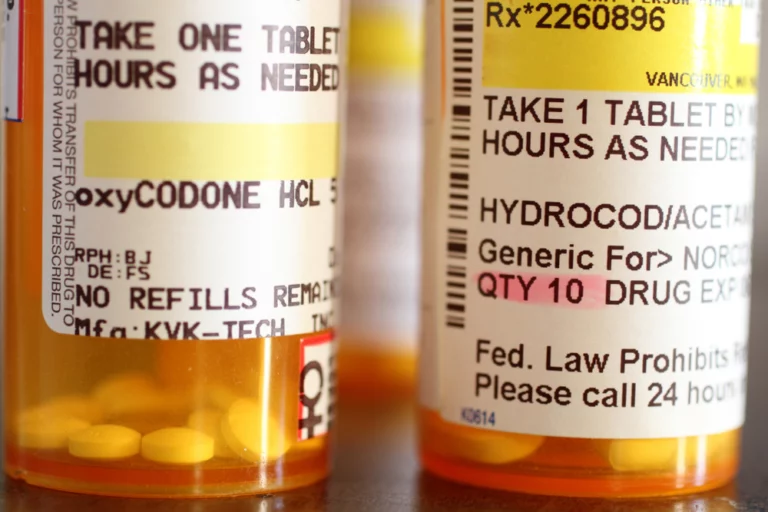Understanding the cocaine withdrawal timeline is essential for anyone aiming to break free from dependence and begin the journey toward lasting recovery. Cocaine use impacts the brain and body in powerful ways, and when someone stops using, the withdrawal process can feel overwhelming without the right knowledge and support.
By learning about the cocaine withdrawal timeline, individuals can better prepare for the emotional and physical challenges that often arise, from the initial crash to longer-term cravings and mood fluctuations. Recognizing these stages is not only important for those experiencing withdrawal but also for families, friends, and caregivers who want to offer meaningful support during recovery.
This guide breaks down the different phases of the cocaine withdrawal timeline, explains what symptoms to expect at each stage, and shares expert recommendations for coping strategies that make the process more manageable. In addition, it highlights resources available in Knoxville, giving individuals the tools and guidance they need to move forward with confidence and resilience on their path to sobriety.

Key Phases of Cocaine Withdrawal
Understanding the different stages of the cocaine withdrawal timeline is crucial for anyone preparing to take the first steps toward recovery. The cocaine withdrawal timeline provides a clear picture of what typically happens in the hours, days, and weeks after stopping cocaine use, helping individuals know what to expect both physically and emotionally.
By becoming familiar with the cocaine withdrawal timeline, people can better anticipate challenges such as fatigue, mood swings, intense cravings, or difficulties with concentration, which often appear in the early stages. Having this knowledge not only reduces fear and uncertainty but also allows individuals to create a realistic recovery plan with the right medical, emotional, and community support in place.
Whether someone is entering treatment for the first time or trying again after a relapse, understanding the cocaine withdrawal timeline can make the recovery journey feel more manageable and less overwhelming.
Initial Crash (1-3 Days)
Initial Symptoms
- Fatigue and exhaustion – The body often feels depleted after prolonged cocaine use, leading to excessive tiredness.
- Depression and anxiety – Mood crashes are common as dopamine levels drop, sometimes accompanied by irritability or hopelessness.
- Increased appetite – Many people experience intense hunger as their bodies attempt to rebalance.
- Agitation and restlessness – Nervous energy, irritability, and difficulty sitting still are frequent early withdrawal symptoms.
- Vivid dreams or insomnia – Sleep disturbances, including difficulty falling asleep or experiencing unsettling dreams, are common.
- Cravings for cocaine – Intense psychological cravings may persist throughout the withdrawal timeline, especially in the early days.
- Difficulty concentrating – Mental fog, poor focus, and reduced motivation often occur as the brain adjusts.
- Slowed thinking or psychomotor retardation – Some individuals may feel mentally slowed down, moving or responding more sluggishly.
Coping Strategies
- Prioritize rest and sleep – Allow the body to recover by sticking to a consistent sleep schedule and practicing relaxation techniques before bed.
- Engage in mild to moderate physical activity – Activities like walking, yoga, or stretching can reduce anxiety, improve mood, and boost energy without overwhelming the body.
- Maintain a balanced diet – Eating nutrient-dense meals with lean proteins, whole grains, and fresh produce helps restore physical health and stabilize mood.
- Stay hydrated – Drinking enough water supports detoxification and helps manage fatigue and headaches.
- Practice mindfulness and stress management – Techniques such as meditation, breathing exercises, or journaling can reduce cravings and emotional distress.
- Seek social support – Talking with trusted friends, family, or support groups can reduce feelings of isolation and provide encouragement.
- Consult healthcare professionals – Medical supervision may be necessary for managing severe depression, anxiety, or other complications.
- Develop a structured daily routine – Having a predictable schedule helps limit downtime, reduce cravings, and rebuild a sense of stability.

Acute Cocaine Withdrawal Timeline (1-2 Weeks)
Initial Symptoms
Increasing cravings, anxiety, mood swings, and sleep disturbances are especially notable during this phase of the cocaine withdrawal timeline. Many individuals report experiencing powerful urges to use cocaine again as the brain struggles to function without the drug’s influence, making this period particularly vulnerable for relapse. Anxiety may intensify, often accompanied by feelings of restlessness, unease, or a sense of impending doom, while rapid mood swings can make it difficult to manage daily responsibilities or maintain healthy relationships.
Sleep issues are also common, ranging from difficulty falling asleep to vivid, unsettling dreams that disrupt rest and leave a person feeling drained the next day. These combined symptoms can create a challenging cycle, as exhaustion and irritability often feed into cravings and emotional instability, making it all the more important to have strong coping strategies and support systems in place.
Management Tips
To successfully navigate the challenges outlined in the cocaine withdrawal timeline, it is essential to engage in therapy, join support groups, and seek medical supervision. Understanding the cocaine withdrawal timeline helps individuals anticipate the emotional and physical difficulties they may face, from intense cravings to mood swings and sleep disturbances, and taking proactive steps can make these stages more manageable.
Therapy provides a safe space to explore the psychological triggers associated with cocaine use and develop coping strategies tailored to each phase of the cocaine withdrawal timeline. Support groups offer community and shared experiences, allowing individuals to connect with others who are going through similar stages, which can be especially helpful during the more difficult points in the cocaine withdrawal timeline.
Medical supervision ensures that any severe or potentially dangerous symptoms are properly monitored and treated, reducing the risk of complications as one moves through the cocaine withdrawal timeline. By combining professional guidance, emotional support, and a clear understanding of the cocaine withdrawal timeline, individuals can improve their chances of successfully completing the withdrawal process and maintaining long-term recovery.
Prolonged Cocaine Withdrawal Timeline (Weeks to Months)
- Symptoms: Persistent psychological challenges, such as cravings and depression, may continue for some.
- Long-Term Strategies: Prioritize ongoing counseling and adopt healthy lifestyle changes for sustained recovery.

Effective Methods for Managing Cocaine Withdrawal
Utilizing the right strategies can help ease the Cocaine withdrawal process and support a successful recovery.
Medical Supervision and Support
- Benefits of Professional Support: Structured detox programs under medical supervision ensure safety and effective symptom management.
- Resources in Knoxville: Access tailored programs offered by local facilities to meet individual needs during withdrawal. Explore our Medical Support Services.
Therapeutic Interventions
- Cognitive Behavioral Therapy (CBT): CBT helps individuals identify and alter thought patterns that contribute to drug use.
- Group Therapy: Participating in group therapy fosters a sense of community, reducing isolation and enhancing accountability. Check out our Group Therapy Sessions.
Lifestyle Modifications
- Diet and Exercise: Good nutrition and regular physical activity boost mood and energy, supporting mental health.
- Mindfulness Practices: Techniques like meditation and yoga can diminish stress and build emotional resilience.
Common Questions About Cocaine Withdrawal
What is the Duration of Cocaine Withdrawal?
Cocaine withdrawal can begin within hours to a day after the last use, and its duration can vary widely, lasting anywhere from one week to several months depending on the individual’s usage history, overall health, and support system.
While the initial physical symptoms, such as fatigue, increased appetite, agitation, and sleep disturbances, often peak within the first two weeks, the psychological and emotional challenges of withdrawal can continue long after the acute phase has passed. Cravings, mood swings, anxiety, and depression may persist for weeks or even months, making continued support and coping strategies critical for sustaining recovery.
Additionally, factors such as co-occurring mental health conditions, stress levels, and social environment can influence the intensity and duration of withdrawal symptoms. Understanding that cocaine withdrawal is not just a brief physical detox but a process that unfolds over time helps individuals and their caregivers approach recovery with patience, realistic expectations, and a proactive plan for both immediate and long-term challenges.
What are the Typical Symptoms of Cocaine Withdrawal?
Common symptoms of cocaine withdrawal include fatigue, depression, vivid dreams, increased appetite, anxiety, and intense cravings. Fatigue can be overwhelming, as the body and brain adjust to functioning without the stimulant effects of cocaine, often leaving individuals feeling physically and mentally drained.
Depression and anxiety are frequent, ranging from mild irritability to more severe emotional lows, and can significantly affect daily functioning. Many people also experience vivid or unsettling dreams and disruptions in sleep patterns, which can exacerbate feelings of exhaustion and irritability. Increased appetite is another typical symptom, as the body attempts to restore energy and balance, sometimes leading to rapid weight gain. Intense cravings for cocaine often arise at various points throughout withdrawal, creating a strong risk of relapse if not properly managed.
It’s important to recognize that the intensity and duration of these symptoms can vary greatly between individuals, influenced by factors such as the length and amount of cocaine use, overall health, mental well-being, and the availability of support networks. Understanding these variations is crucial for developing a realistic and effective recovery plan tailored to each person’s unique experience.
How Can I Prepare for Withdrawal and Recovery?
Preparation is key when navigating the cocaine withdrawal timeline, understanding the process, seeking medical guidance, establishing a support network, and developing long-term strategies for managing cravings and stress are all essential steps.
By familiarizing yourself with the cocaine withdrawal timeline, you can anticipate the stages of withdrawal, from the initial physical symptoms to the longer-term psychological challenges, and plan accordingly.
Seeking medical guidance ensures that any severe or potentially dangerous symptoms are properly monitored and treated throughout the cocaine withdrawal timeline, while building a strong support network of friends, family, and peer groups provides encouragement during the more difficult phases.
Developing long-term sobriety strategies, such as stress management techniques, structured routines, and healthy coping mechanisms, is crucial for successfully completing the cocaine withdrawal timeline and reducing the risk of relapse.
Additionally, guidance and community resources available in Knoxville can play a pivotal role in recovery, offering professional counseling, support groups, and treatment programs designed to help individuals navigate each stage of the cocaine withdrawal timeline with confidence and resilience.

Enhancing Recovery Success
Successfully navigating the cocaine withdrawal timeline is a significant step towards recovery. By understanding withdrawal stages, engaging in supportive therapies, and implementing healthy lifestyle changes, individuals can increase their likelihood of achieving lasting sobriety. If you’re in Knoxville and need specialized support, reach out to the Knoxville Recovery Center for expert care tailored to your recovery needs, or call 865-830-3967 to embark on your path to a healthier life.








